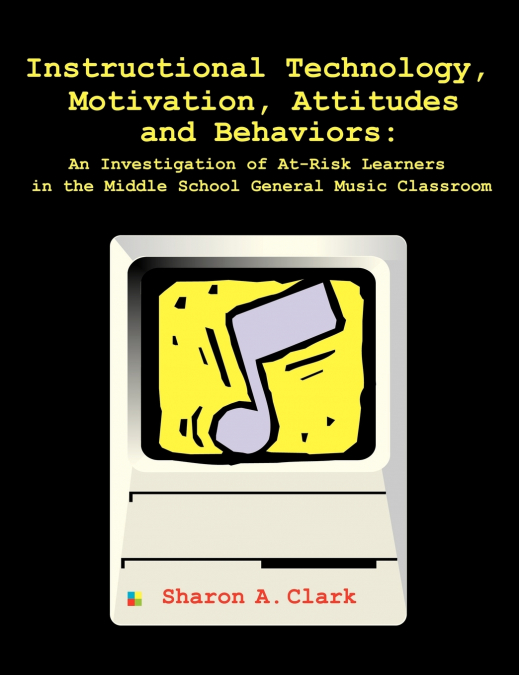
 Librería Perelló (Valencia)
Librería Perelló (Valencia)
 Librería Aciertas (Toledo)
Librería Aciertas (Toledo)
 Librería Elías (Asturias)
Librería Elías (Asturias)
 Donde los libros
Donde los libros
 El AlmaZen del Alquimista (Sevilla)
El AlmaZen del Alquimista (Sevilla)
 Librería Kolima (Madrid)
Librería Kolima (Madrid)
 Librería Proteo (Málaga)
Librería Proteo (Málaga)
In middle schools today, teachers meet many challenges.The research question addressed in this dissertation was: What are the effects of instructional technology on motivation, attitudes and behavior of at-risk learners in the middle school general music classroom? The purpose of this study was to determine if the implementation of instructional technology, specifically digital piano keyboards and computers, in the middle school general music program would have a positive effect on the motivation, attitudes and behaviors of at-risk learners. To this end, a study was conducted in which at-risk learners received instruction delivered through a higher concentration of technology.Students completed a pretest and a posttest consisting of the Motivation Achievement Profile, audiation/listening and audiation/reading scales of Level One of the Iowa Tests of Music Literacy and the Middle School Music Attitude Scale. The experimental group received music instruction through a higher concentration of technology while the comparison group participated in an equally desirable music program.Data was analyzed using an analysis of covariance, in which the posttest mean of the experimental group was compared with the posttest mean of the comparison group with the pretest scores used as a covariate. Overall, no statistical significance was found; however, statistical significance was found on 2 of the 22 measures taken. Furthermore, there was a remarkable degree of consistency for the experimental group. Overall, consistency was seen with the experimental group scoring higher on 18 of the 22 measures indicating that perhaps if there had been more students a significant effect might have been seen. Nonetheless, the consistency leads to the conclusion that the treatment had some kind of effect. There is an implication that a positive, although not statistically significant effect on the motivation, attitudes and behaviors of at-risk learners occurred.